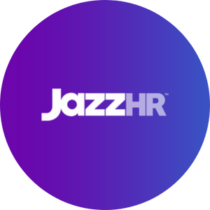
4 Tips for Effective Performance Management During the First Year
Monitoring employee performance after the onboarding period can be a challenging but important undertaking for HR teams–performance management can not only increase productivity but also reduce turnover.
There are two main reasons why HR leaders should take a proactive approach to performance management within the first year of employment:
- It costs roughly 33% of an employee’s annual salary to hire a replacement.
- Roughly 40% of employees who quit their jobs do so within six months of getting hired.
Here are four ways to manage new employee performance in a way that promotes retention:
1. Establish clear objectives tied to company goals
To meet performance objectives, employees need to understand them first. As the onboarding stage of the hiring process comes to an end, new employees should clearly understand what’s expected of them.
When outlining objectives pertaining to individual employee performance, stakeholders should show they reflect larger company goals. Depending on the position, it may be difficult for new employees to grasp how their work directly supports the success of the business. Making these connections clear can provide much-needed motivation.
2. Ditch the yearly performance review
You’d have to look pretty hard to find advocates of formal annual performance reviews. In fact, 95% of managers and 90% of HR leaders are dissatisfied with how their companies conduct performance reviews. Furthermore, annual reviews are completely useless to the significant percentage of employees who quit before their first anniversary.
Half of all companies today use informal performance check-ins, which employees vastly prefer for their laid-back environment. Informal reviews place less stress on employees. They can feel more comfortable talking about their concerns and asking for advice.
3. Write out your thoughts, but communicate them face-to-face
No one likes to be surprised by a performance review. Whether you’re conducting a formal performance review for the purpose of a salary negotiation or you’re just checking in, it helps to put your thoughts on paper (or screen).
Writing out your review gives you the chance to connect each criticism to an action item. For example, if you’re concerned about an employee’s productivity, you can provide a few tips on how to improve. Always share your feedback in person so you can address any concerns and make concrete plans to follow up.
4. Consider emotional factors
In many cases, when an employee leaves a position during the first year of employment, it’s not because of salary or even job satisfaction. Inc. Magazine contributor Michael Schneider has found that emotional factors weigh heavily on the decision.
Schneider noted four common emotional needs tied to retention:
- Security: Employees want to be sure they made the right decision when they took the job.
- Control: New hires crave a sense of ownership over their work.
- Connection: Employee frustration can stem from a feeling of isolation from their coworkers.
- Status: Workers want to feel relevant and helpful to the organization; they want their opinion to be valued.
Addressing these emotional factors early on can promote feelings of inclusiveness as well as emotional and financial security.
Takeaways
Effective management of employee performance during year one of employment can lead to lower talent attrition rates and higher productivity. To achieve these benefits, consider:
- Developing clear employee performance objectives and tying them to company-wide goals.
- Holding multiple informal performance reviews throughout the year.
- Writing out your reviews before communicating them face-to-face.
- Addressing the emotional components of employee retention.
- Building performance analysis into your hiring process.
Sign up for a free demo of JazzHR to learn more about how to improve employee retention at your organization.






Leave a Reply
You must be logged in to post a comment.